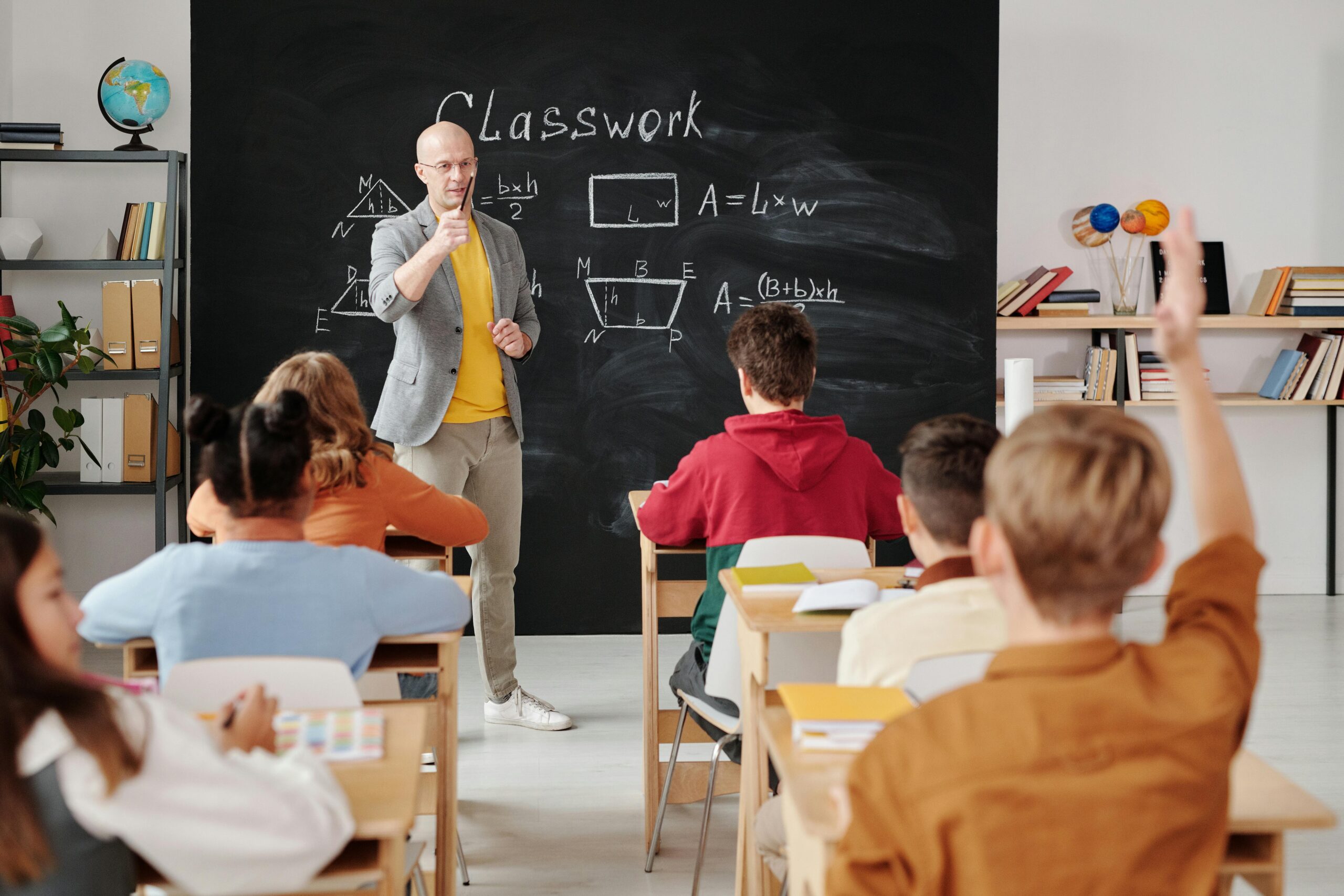The initial not many long periods of a youngster’s life resemble the underpinning of a structure serious areas of strength for — stable basis guarantees everything based upon it will flourish. Youth schooling (ECE) is essential in forming this establishment, furnishing youthful personalities with the devices to develop, learn, and succeed.
In any case, ECE is about something beyond ABCs and 123s. A groundbreaking encounter cultivates scholarly, close-to-home, and social turn of events. From working on mental capacities to supporting profound versatility, the advantages of early schooling frequently go past what guardians could anticipate.
Inquisitive about what makes youth training so imperative? We should investigate 10 amazing advantages that demonstrate exactly how effective these early learning years can be.
Cognitive Development
Building Brain Connections
-
- Neural growth during early years
- Impact of Structured Learning Activities
(1) Neural growth during early years
A youngster’s cerebrum resembles a wipe in the early years, quickly retaining data and shaping associations. Truth be told, during this period, the cerebrum grows more than 1 million new brain associations consistently at a speed.
This unprecedented brain development establishes the groundwork for mental and profound capacities. Youth instruction uses this basic stage by presenting organized exercises, intelligent play, and critical thinking errands. These encounters invigorate brain connections, upgrading a kid’s capacity to think fundamentally, process data, and adjust to new circumstances.
At the point when youngsters are presented with different learning conditions from the beginning, it reinforces these associations as well as fabricates the mind’s ability to learn from here on out. It resembles preparing a muscle — reliable excitement guarantees a more grounded, more able mind prepared to handle difficulties.
By cultivating this development, youth schooling assists set up for a deep-rooted scholarly turn of events, giving children an evident head with starting.
(2)Impact of structured learning activities
Organized learning exercises resemble directed experiences for youthful personalities, offering the ideal harmony between play and schooling. These exercises give a structure that assists youngsters with investigating ideas, constructing abilities, and grasping their general surroundings in an orderly manner.
In youth training, organized gaining can go from basic undertakings like matching shapes and varieties to additional perplexing exercises, for example, narrating and bunch projects. Every one of these assignments is painstakingly intended to advance mental turn of events. For instance:
Matching Games: Improve design acknowledgment and critical thinking abilities.
Storytime: Lifts language procurement, tuning in, and cognizance.
Bunch Play: Creates collaboration and cooperation while working on the capacity to understand individuals on a deeper level.
What makes organized realizing so effective is its capacity to make intentional commitments. Rather than irregular play, youngsters are directed to zero in their energy on exercises that empower mental health. This approach additionally cultivates self-control and the capacity to adhere to directions — key qualities that set them up for formal tutoring.
Problem-Solving Skills
- Developing critical thinking through play
(1) Developing critical thinking through play
Play is much of the time seen as basic tomfoolery, however, in youth schooling, it’s a useful asset for creating decisive reasoning abilities. Through play, kids figure out how to investigate, try, and take care of issues, all of which fabricate the establishment for legitimate thinking and independent direction.
Take, for instance, a youngster fabricating a pinnacle with blocks. At the point when the pinnacle falls, the kid normally starts to assess what turned out badly and explores different avenues regarding better approaches to stack the blocks. This experimentation cycle is the quintessence of decisive reasoning.
This is the way play cultivates these abilities:
Critical thinking Exercises: Games like riddles urge youngsters to freely think in a calculated manner and track down arrangements.
Pretending Games: Imagine play, for example, “playing house” or “running a store,” assists messes with examining circumstances, simply deciding, and figuring out circumstances and logical results connections.
Unconditional Play: Exercises without severe standards, similar to craftsmanship or working with LEGO, advance inventiveness and imaginative reasoning.
In these energetic situations, youngsters figure out how to get clarification on some pressing issues, test speculations, and assess results all significant stages of decisive reasoning. Youth training improves these encounters by giving a climate wealthy in intuitive and creative play, directed by teachers who energize interest and investigation.
Emotional Growth
Fostering Emotional Intelligence
-
- Understanding feelings and empathy
Building Confidence and Independence
- Achieving milestones in a supportive environment
(1) Understanding feelings and empathy
One of the most significant fundamental abilities kids gain in youth schooling is the capacity to figure out their own feelings and identify with others. This improvement of the capacity to understand people on a deeper level begins with perceiving and naming sentiments an expertise that assists youngsters with exploring their connections and answering insightfully to various circumstances.
In organized early training settings, kids are much of the time directed through exercises that show close-to-home mindfulness. For instance:
Feeling Graphs: These visual apparatuses help youngsters recognize and mark their sentiments, whether it’s bliss, disappointment, or bitterness.
Storytime Conversations: Stories with appealing characters permit youngsters to think about how others could feel in comparable circumstances.
Bunch Exercises: Working with peers shows youngsters how to share, alternate, and solace others when clashes or difficulties emerge.
By figuring out how to communicate their feelings productively, youngsters become better prepared to oversee pressure and dissatisfaction. Sympathy, then again, creates as they connect with different characters in their initial training climate. Whether consoling a companion’s bombshell or commending another person’s prosperity, these minutes train youngsters to comprehend and focus on others’ sentiments.
Building Confidence and Independence
Achieving milestones in a supportive environment
(2) Achieving milestones in a supportive environment
Each youngster’s process is loaded up with achievements those huge minutes that imprint progress in physical, profound, mental, and social turn of events. Youth training gives a sustaining and organized climate where kids can accomplish these achievements at their speed while getting the consolation and backing they need.
In a strong early getting the hang of setting, youngsters are encircled by educators who praise their triumphs and guide them through challenges. This encouraging feedback helps construct their certainty and cultivates a feeling of achievement. Whether it’s making their most memorable strides in perusing or figuring out how to count, each achievement accomplished supports confidence and persuades them to continue investigating and learning.
This is the way a strong climate has an effect:
Individual Consideration: Teachers tailor exercises to meet every youngster’s interesting necessities and formative stage.
Support Through Difficulties: Youngsters are tenderly pushed to get out of their usual ranges of familiarity, whether it’s talking before friends or tackling an interesting riddle.
Positive Companion Cooperation: Working together with colleagues assists youngsters with creating collaboration abilities and gaining from each other.
Social Skills
Learning to Share and Collaborate
Importance of group activities
(1) Importance of group activities
Each youngster’s process is loaded up with achievements those huge minutes that imprint progress in physical, profound, mental, and social turn of events. Youth training gives a sustaining and organized climate where kids can accomplish these achievements at their own speed while getting the consolation and backing they need.
In a strong early getting the hang of setting, youngsters are encircled by educators who praise their triumphs and guide them through challenges. This encouraging feedback helps construct their certainty and cultivates a feeling of achievement. Whether it’s making their most memorable strides in perusing or figuring out how to count, each achievement accomplished supports confidence and persuades them to continue investigating and learning.
This is the way a strong climate has an effect:
Individual Consideration: Teachers tailor exercises to meet every youngster’s interesting necessities and formative stage.
Support Through Difficulties: Youngsters are tenderly pushed to get out of their usual ranges of familiarity, whether it’s talking before friends or tackling an interesting riddle.
Positive Companion Cooperation: Working together with colleagues assists youngsters with creating collaboration abilities and gaining from each other.
The strong climate of early training isn’t just about scholastic accomplishments; it likewise sustains profound versatility and social certainty. At the point when kids have a real sense of security and esteem, they are more able to face challenges, commit errors, and at last develop from those encounters.
Conflict Resolution Skills
Teaching children how to manage disagreements
(2) Teaching children how to manage disagreements
Conflicts are a characteristic piece of life, and figuring out how to deal with them is an urgent expertise for youngsters to grow right off the bat. In youth training, kids are oftentimes given chances to communicate with their companions, which in some cases prompts them. The capacity to oversee conflicts in a solid, helpful way is something that can help youngsters all through their lives, and early schooling gives the ideal setting to show these fundamental abilities.
This is the way youth instruction assists kids with figuring out how to explore clashes:
Displaying Quiet Reactions: Educators and guardians go about as good examples of compromise by exhibiting tranquility, tolerance, and deferential correspondence. Youngsters see how grown-ups oversee conflicts, and this sets a positive model for them to follow when they face comparative circumstances.
Showing Compassion and Viewpoint Taking: Youngsters are urged to imagine others’ perspectives and contemplate what their activities or words might mean for another person. This course of sympathy assists kids with grasping the profound side of contentions and prompts a more insightful, thoughtful way of behaving.
Empowering Open Exchange: Kids are instructed to communicate their sentiments utilizing words instead of activities. Teachers guide kids to utilize “I feel” proclamations to verbalize their feelings, for example, “I feel upset when you take my toy” or “I could do without it when you push me.” This approach assists kids with conveying their requirements without falling back on outrage or hostility.
Critical Thinking Together: When a conflict emerges, educators urge youngsters to conceptualize arrangements together, advancing helpful critical thinking.
Academic Readiness
Early Exposure to Literacy and Numeracy
-
- How reading and counting prepare kids for school
(1) How reading and counting prepare kids for school
Perusing and counting are two essential abilities that act as the structure blocks for a youngster’s scholarly excursion. While youth training acquaints youngsters with these abilities in tomfoolery and connecting way, they are fundamental in making way for progress in school and then some.
This is the way perusing and counting assist with planning youngsters for school:
Perusing: Creating Proficiency Abilities
Early openness to perusing assists youngsters with creating fundamental proficiency abilities that will be urgent all through their instructive excursion. This is the way perusing sets them up:
Building Jargon: As youngsters are presented with books, stories, and new words, their jargon grows. A rich jargon empowers them to communicate their thoughts all the more obviously and see more complicated thoughts as they progress in school.
Phonemic Mindfulness: Through exercises like rhyming and letter-sound acknowledgment, youngsters gain proficiency with the sounds. Phonemic mindfulness is perhaps the earliest move toward figuring out how to peruse, making it simpler for kids to decipher words as they advance in proficiency.
Figuring out Design: Perusing books acquaint kids with the construction of languages, like sentence development, accentuation, and syntax. This early comprehension of how language functions establishes the groundwork for better composition and cognizance abilities later in school.
Cultivating an Affection for Realizing: When youngsters are acquainted with perusing from the get-go, they frequently foster an adoration for books and narrating. This fervor for perusing empowers autonomous learning and interest all through their scholastic professions.
Conclusion:
Youth training is something beyond a prologue to perusing and composing it’s the establishment. From creating decisive reasoning and the capacity to understand people on a deeper level to figuring.
By sustaining mental development, showing compassion, and building interactive abilities, youth training plans youngsters. It encourages an affection for learning, reinforces certainty, and assists youngsters in constructing significant associations with their companions. Above all, it guarantees that each kid has the devices they need to succeed, regardless of where their process takes them.


